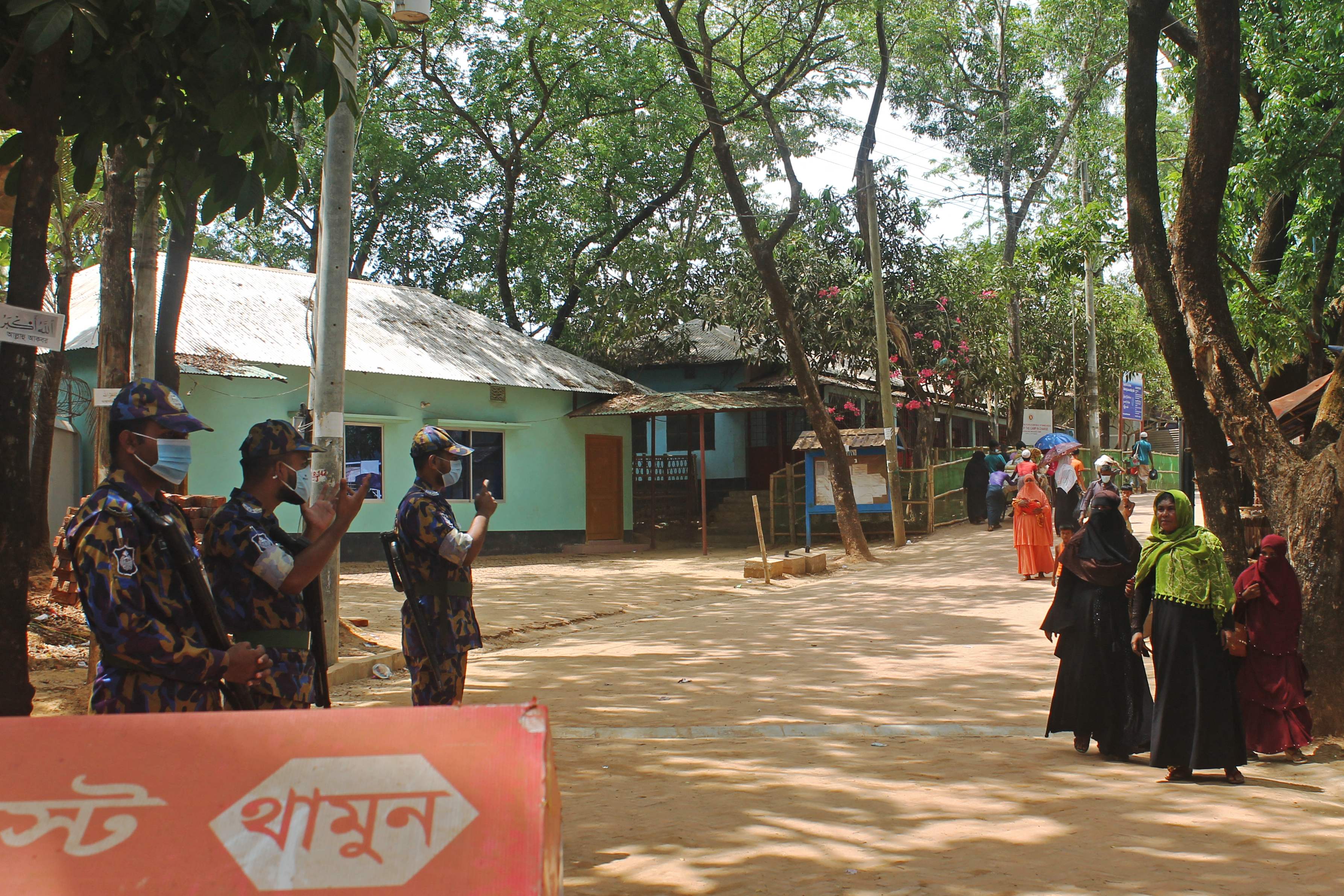Human rights group accuses United Nations of sharing Rohingya data without informed consent
In the last few years, nearly 800,000 Rohingya have fled from Myanmar

Your support helps us to tell the story
From reproductive rights to climate change to Big Tech, The Independent is on the ground when the story is developing. Whether it's investigating the financials of Elon Musk's pro-Trump PAC or producing our latest documentary, 'The A Word', which shines a light on the American women fighting for reproductive rights, we know how important it is to parse out the facts from the messaging.
At such a critical moment in US history, we need reporters on the ground. Your donation allows us to keep sending journalists to speak to both sides of the story.
The Independent is trusted by Americans across the entire political spectrum. And unlike many other quality news outlets, we choose not to lock Americans out of our reporting and analysis with paywalls. We believe quality journalism should be available to everyone, paid for by those who can afford it.
Your support makes all the difference.Global human rights group Human Rights Watch (HRW) on Tuesday accused the United Nations of sharing data of Rohingya refugees with Bangladesh which in turn shared it with Myanmar to verify people for possible repatriation.
In a statement, the HRW accused the UN of not conducting a full data impact assessment, which is a requirement according to its own policies, and in some cases “failed to obtain refugees’ informed consent to share their data with Myanmar, the country they had fled.”
The rights group explained that since 2018 UN High Commissioner for Refugees (UNHCR) has registered hundreds of thousands of Rohingya refugees in Bangladeshi camps.
“The Bangladesh government has issued them identity cards, which are needed for essential aid and services. Bangladesh then used the information, including analog photographs, thumbprint images, and other biographic data to submit refugee details to the Myanmar government for possible repatriation,” the HRW said.
It claimed that since 2016, over 800,000 Rohingya from Myanmar were either expelled or they fled to Bangladesh fearing persecution.
Lama Fakih, who is the HRW’s crisis and conflict director, said: “The UN refugee agency’s data collection practices with Rohingya in Bangladesh were contrary to the agency’s own policies and exposed refugees to further risk.”
She said that the UNHCR “should only allow data that it collects to be shared with countries of origin when it has properly obtained free and informed consent from participants.”
The human rights group asked the UNHCR to investigate the manner in which data collection proceeded in Bangladesh in 2018.
Between September 2020 to March 2021, the HRW interviewed 24 Rohingya refugees about their registration experiences with the UNHCR in Cox’s Bazar, Bangladesh and spoke to 20 aid workers, analysts, local activists, journalists, and lawyers who observed or participated in the Rohingya registration.
It shared its research findings with the UNHCR in February and April 2021 and the UN agency replied to the points raised last month.
According to the HRW, the UN agency, in its reply denied any wrongdoing or policy violations, and said it had explained all purposes of the data gathering exercise and had obtained consent. It also said that the “data collection efforts were aimed at finding durable solutions for the refugees and that no Rohingya were put at risk.”
The HRW alleged that “all but one of the 24” Rohingya refugees they interviewed said that the UNHCR staff informed told them that they “had to register to get the smart cards to access aid, and they did not mention anything about sharing data with Myanmar, or linking it to repatriation eligibility assessments.”
Of the 24, three said they were told after giving their data that it might be used for repatriation purposes while one said he noticed after leaving the registration centre that the box to share data with Myanmar, on a receipt printed out and given to refugees only in English, had been checked “yes,” although he was never asked, the HRW alleged.
The human rights group claimed that they interviewed 21 refugees whose names were included in the list verified by Myanmar for repatriation, and of them, 12 were added to repatriation eligibility assessment lists in 2019 which were drawn up based on the data collected by the UNHCR.
When the 21 refugees learned about them being on the lists of people verified for return, the HRW said they “all went into hiding in other camps because they feared being forcibly returned” even as, so far, Bangladesh has not forced any Rohingya in the camps to return against their will to Myanmar.
Zara Rahman, a writer, in a series of tweets, said that the “question of whether they consented to share data with Myanmar was only sometimes provided, and then only in written English – violating UNHCR’s own policy of providing refugees with data collection info in a language and manner they understand.”
“In summary: thanks to UNHCR’s failures, the biometric data of many #Rohingya remains with Myanmar, a country now under military control – ie. the military who carried out the genocide. We desperately need accountability mechanisms to make sure this doesn’t happen again,” Ms Rahman tweeted.
Join our commenting forum
Join thought-provoking conversations, follow other Independent readers and see their replies
Comments